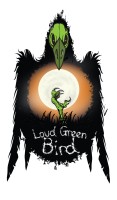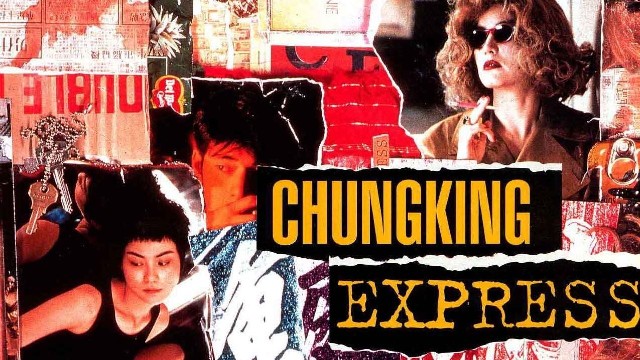
Written and directed by: Wong Kar Wai
Starring: Brigitte Lin, Takeshi Kaneshiro, Tony Leung Chiu Wai, Faye Wong
Background
If you want to know something about Hong Kong (HK) cinema, you need to watch and study the films of auteur Wong Kar Wai (as well as other major HK filmmakers — such as crime/action director Johnnie To, about whose film Exiled I posted a while back).
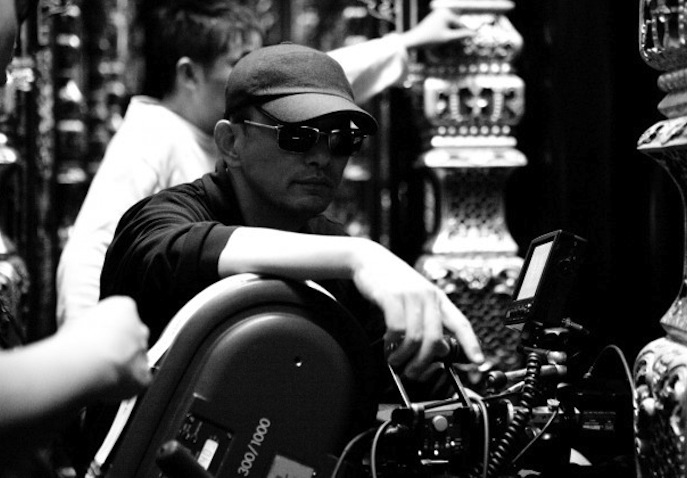
Born in Shanghai, Wong’s family moved to Hong Kong when he was about five years old. Later, he studied graphic arts and started working for a Hong Kong television station, where he learned production. He left this job to become a full-time screenwriter, then a director.
Released in HK in 1994, Wong’s Chungking Express was not well-known in the United States until Quentin Tarantino released it in 2002 via his Rolling Thunder Pictures venture. Listen as Tarantino explains the origins of the film:
The “Chungking” of this movie’s title is Chungking Mansions, which is a complex of five seventeen-storey buildings located on Nathan Road, the “main drag” in Tsim Sha Tsui, the section of Kowloon (“Nine Dragons”) located a ferry or subway ride across the harbor from the island of Hong Kong. Along with the New Territories, Kowloon forms the part of Hong Kong that is actually on the Chinese mainland. The renovated entrance of this structure is a stark contrast to its otherwise dilapidated appearance from a distance.

It is a lacuna of sorts because Tsim Sha Tsui is an upscale and somewhat expensive area, at least for tourists. I have been to Chungking Mansions several times, both before and after the 1997 Handover (when the UK returned Hong Kong to China after its “lease” ran out). The interior still features surrealistic, multicultural scenes such as depicted in Wong’s movie, although it doesn’t appear in blurry slow motion like in the film (unless you go on a bender before you visit).
Story
Set in pre-Handover Hong Kong, “Chungking Express” tells two tales, each about a relationship that develops by chance. Equally fortuitously, chance events in the life of Takeshi Kaneshiro’s character, He Zhiwu, an undercover HK police officer, connect these two otherwise independent love stories.
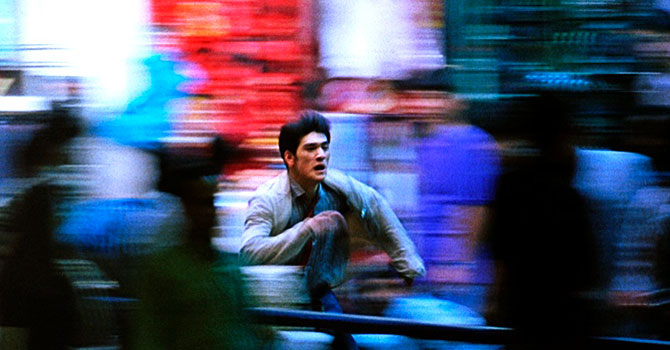
The first story is about the “Woman in Blonde Wig” (Lin), who meets He Zhiwu in a bar on the eve of his twenty-fifth birthday. His girlfriend broke up with him thirty days beforehand, an event which he commemorated with the daily purchase of a can of pineapples that expires on his birthday (which is May 1). Lin’s character has been dealing with the fallout from a drug-smuggling operation that failed after her supplier, a local dive bar owner, swindled her.

The second story describes the relationship between Leung’s character, a beat cop known only as “Cop 663,” and Faye (Wong), a young woman who works in her uncle’s deli, but dreams of adventure in sunny California. She listens to loud music so she “doesn’t have to think.” He has just broken up with a flight attendant he “seduced at 25,000 feet”; he copes with this event by talking to inanimate objects.
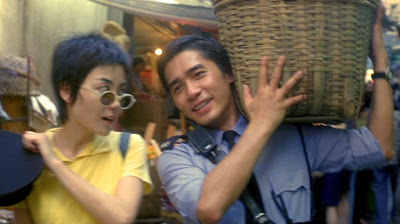
Both stories resolve themselves in a more or less bittersweet fashion. The female characters are the ones who make bold choices and take action, while the male characters are emotional and reactive. This was the exception rather than the rule in HK movies until the 1990s. As Tarantino mentions in the above video, there is a third story that was ultimately not included in this film, but which later became the basis for yet another Wong production.
Commentary
From pre-production, through shooting, and into post, Chungking Express is a collection of virtuoso work by all involved in it. On the story / screenplay level, the film captures the lonesome randomness of big-city life, as well as its unforeseen opportunities for connection and intimacy, however fleeting. It blends elements of several genres, including crime, romance, comedy, drama, mystery, and thriller.
Actors
As Tarantino points out in the video above, another important aspect of this film is that it stars some of the most famous (and most attractive) HK actors of the period:

Chungking Express was the last on-screen appearance for Brigitte Lin. She retired after the production wrapped, having acted in almost 100 films, including other classics like The Bride With White Hair (see my review). She is considered the Garbo of Hong Kong cinema.
Beijing-born Faye Wong started her career as a singer and continued to work primarily in the pop music industry after becoming a hit actor (not unusual in HK). She recorded the cover of the Cranberries’ “Dreams” for Chungking Express‘ soundtrack. While Lin did many film projects, Faye has only ten acting credits. One of them is for Wong Kar Wai’s 2004 science-fiction feature, 2046. She is known for being quirky and unpredictable.

HK-born Tony Chiu Wai Leung (Chinese personal name included because there are two famous HK actors named Tony Leung) has been and remains one of HK’s major male movie stars. He has appeared in many Wong Kar Wai films (including the classic 2002 police/gangster thriller, Infernal Affairs — see my review). His most recent feature film role was Ip Man in 2013’s The Grandmaster. Leung is also a Cantopop star, but acting is his primary career.
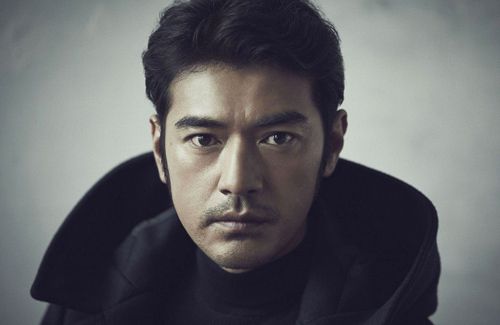
Taiwanese-Japanese actor Takeshi Kaneshiro started out as a teen pop idol and model but soon found his footing as an actor. Although a classically handsome man, he strives for quirky, challenging roles that go against the grain of the leading-man stereotype. His most recent films were John Woo’s The Crossing and The Crossing 2. He will appear with Tony Chiu Wai Leung and Angelababy in the soon-to-be-released The Ferryman, directed by Jiajia Zhang and co-written by Wong Kar Wai.
Filmmakers

As one can see from the images taken from Chungking Express for this essay, its cinematography is stunning in its colorful, expressive, energetic, and unconventional nature. Wong’s love for and homage to French New Wave cinema (in particular, Godard’s Breathless) is difficult to miss in this film.
The high quality and unique style of the cinematography is due to Wong’s collaboration with DP Christopher Doyle, A long-term member of Wong’s production team, Doyle also has become an icon in his own right in HK cinema.
Frisco Kid’s IMDb Rating: 9 out of 10 stars

